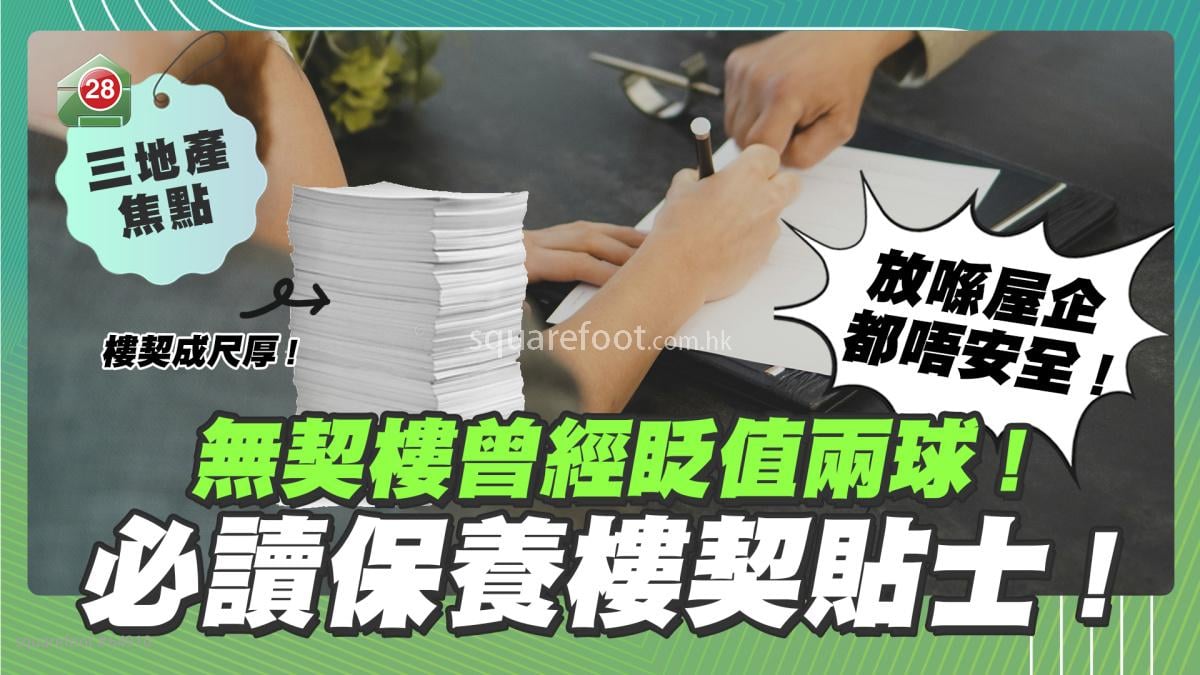- Home
- News
- Expert Blog
- Wed Property Focus
- How To Safeguard A Property Title Deed
When a homeowner applies for a mortgage from a bank, the deed is kept as collateral by the bank to protect its interests during the loan period. Once the mortgage is fully paid off, the homeowner can apply for a discharge of mortgage, and with the help of a lawyer, they can fully own the property.
For many homeowners, obtaining the deed is a significant milestone. But what exactly is a deed? A title deed is a crucial property document that proves ownership. It is a transfer document that moves property ownership from the original owner to the new buyer. If the deed is lost, the bank may not approve a mortgage, or it could affect the loan amount granted.
If the original deed is lost, the property becomes known as a "deedless property." Although the owner can apply for a "certified copy of the deed" (also known as a "copy deed"), which is legally effective, it cannot fully replace the original. Even after obtaining a copy, the property is still considered to have an incomplete deed.
When selling a property, since the new buyer cannot use the original deed to prove full ownership, they might find it difficult to get a mortgage. As a result, sellers should be prepared for significant price reductions, even if there is buyer interest.
Buyers should note that if the deed is lost or the seller informs them of an incomplete deed after signing the preliminary sales agreement, the buyer has the right to cancel the transaction and retrieve the deposit. They may also claim commissions and legal fees. However, this does not apply if the buyer knew about the deed issue before signing the contract.
If the deed is lost or the seller discloses the incomplete deed after signing the preliminary sales agreement, the buyer can terminate the transaction and reclaim the deposit. The buyer can also seek compensation for agency fees, legal costs, and any increase in property value during the waiting period, unless the seller can prove that the buyer was aware of the deed issue before signing.
How can one obtain a copy of the deed? The homeowner needs to make a sworn statement at a law firm, explaining the reasons and circumstances of the deed loss, and declaring that the deed was not used as collateral. Then, with the lawyer's assistance, they can apply for a certified copy from the Land Registry.
Given the importance of the deed, how can homeowners store it safely? Keeping the deed at home is the simplest method, but it requires sufficient storage space as the deed can consist of several boxes of documents. There is also a risk of damage due to moisture or fire.
The second method is to store the deed in a bank safe deposit box, which costs a few thousand dollars annually. However, these boxes are often in high demand, so it may take time to get one. Some banks also offer temporary deed storage services, but this is only for those who have fully repaid their loans but have not yet retrieved their deeds.
The third method is to consider refinancing the property with the original bank. This allows the homeowner to cash out funds and deposit the extra money into a mortgage-linked savings account to offset the interest costs. The deed remains with the bank, providing multiple benefits. However, for homeowners who have worked hard to pay off their mortgage, the idea of returning to monthly payments might not be appealing.
Like
| Property Type | Price | Ads Period |
|---|---|---|
| For Sale Property | ||
Normal Listing Typical One | HKD:1000 (or Hsemoney:1000) | Valid:90 days |
Golden Top Listing Higher position than Top listing 2-3times better performance | HKD:3000 (or Hsemoney:3000) | Valid:60 days |
| Rental Property | ||
Normal Listing Typical One | HKD:1000 (or Hsemoney:1000) | Valid:80 days |
Golden Top Listing Higher position than Top listing 2-3times better performance | HKD:3000 (or Hsemoney:3000) | Valid:60 days |
